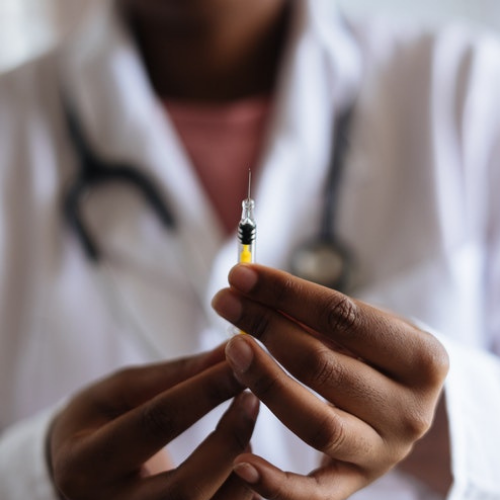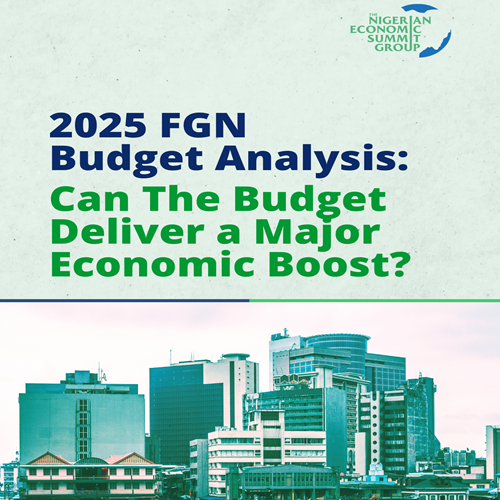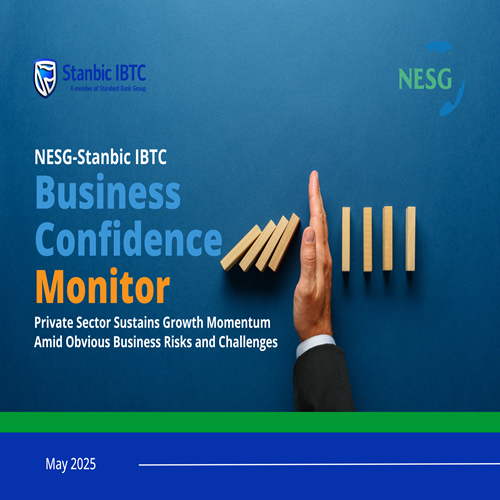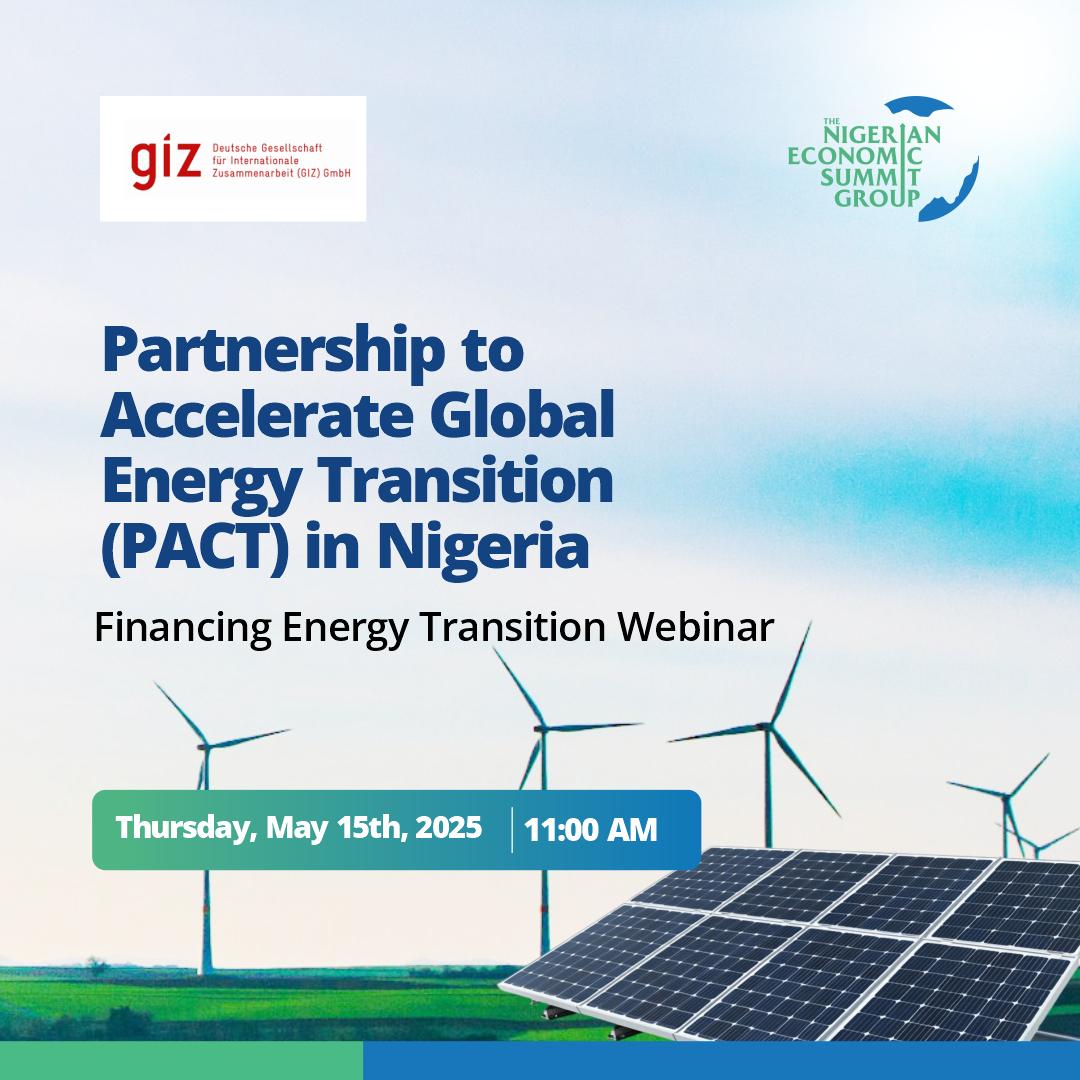Posted Wed, Oct 6, 2021 8:55 AM
Enhancing Local Manufacturing of Medicines and Vaccines

The Health Policy Commission (HPC) of the Nigerian Economic Summit Group (NESG), in collaboration with the Federal Ministry of Finance, Budget and National Planning on Wednesday 29th of September, 2021, held a pre 27th Nigerian Economic Summit (NES27) event with the theme "Enhancing Local Manufacturing of Medicines and Vaccines."
NESG Board member Mr Lanre Akinbo in his welcome remarks, said that the pandemic had exposed the inherent weaknesses in Nigeria's health system and the rise in prices of drugs and medical consumables had a cascading negative effect on the treatment and overall quality of life of Nigerians. He stated that encouraging local pharmaceutical manufacturing would enhance the domestic production of medicines and vaccines. Mr Akinbo revealed that the Pharmaceutical Society of Nigeria (PSN) reported that members were able to access over 90 per cent of the COVID-19 health loans provided by the Central Bank of Nigeria (CBN) and that the country is presently in the early stages of COVID-19 vaccine development.
In his keynote address, the honourable minister for trade and investment, Otunba Niyi Adebayo, who was represented by Special assistant on investment and Agribusiness, Ms Judy Melifonwu, stated that the pandemic has amplified vulnerabilities, forced countries to be self-sufficient, and encouraged the development of Nigeria's health sector which are all critical to economic growth.
"We currently meet 30 per cent of our demands for health commodities, and we realise the importance of developing the health sector. Presently, Nigeria has a total sold annual capacity of 1.6 billion syringes and needles with a demand of between 2.5 to 3 billion syringes; indicating that our industries are not supplying the demand in that sector, perhaps due to cost of production," she stated.
Ms Melifonwu also revealed that a national industrial policy on medical devices is being developed to stop importing sub-standard products. It has become mandatory for all health institutions to use locally manufactured syringes and needles to help contribute to the health sector's growth and country GDP.
Aurelia Nguyen, managing director of the office of the COVAX facility, said that the pharmaceutical market is critical to Nigeria's future and economic growth, and the pandemic has shown why countries like Nigeria need to be self-sufficient in the production of medical consumables.
Dr Fidelis Ayebae, the Managing Director/CEO of Fidson Healthcare limited, said that a country that fails to manufacture what they consume would certainly face problems in the long run. He reiterated the need for policies to be targeted at industries keen on national development. Nigeria does not presently have a policy focused on making drug manufacturing a sustainable sector in Nigeria.
"The smallest investment to set up a pharmaceutical manufacturing company in Nigeria is not less than N5 billion naira, and complex therapeutic agents will require tens of billions of naira. Individuals involved are not protected, and all manners of policy summersaults tend to affect producers. There is a need for the CBN to assist players in the pharmaceutical field while ensuring proper monitoring and evaluation of players in the sector. Local manufacturing remains the only antidote to fighting the prevalence of fake and substandard products in the country," Dr Ayebae stated.
During the panel session, the president of the Pharmaceutical Society of Nigeria (PSN), Mazi Sam Ohuabunwa, said that actions are essential for policies to work and that the health policy initiated about 20 years ago estimated that by 2005, 75 % of essential medicines should be produced in Nigeria. He noted that while some of these guidelines look good, they have not been matched by consistent action as global manufacturers overrun the local industry, which needs capital support to thrive.
Mr Solomon Quaynor, vice president, private sector infrastructure and industrialisation, African Development Bank (AfDB), who was represented by Dr Abdu Mukhtar, Director for automation and Trade Development at AfDB, said the AfDB is interested in providing capital support to pharmaceutical companies, while also reiterating the importance of public financing to enhance Nigeria's pharmaceutical industry.
Mr Mopa Esuga, chief of party USAID funded promoting vaccines, said that funding and capacity building are essential to developing the pharmaceutical industry. Professionals, manufacturers, and regulators can benefit from training related to good manufacturing practices and other critical areas.
Mr Patrick Ajah, Managing Director/CEO, May & Baker (Biovaccines ltd), who Mr Everest Okeakpu represented, said that Biovaccines ltd is a joint venture between the government and May & Baker with a strategy to address capacity building for local manufacture of vaccines, infrastructure for the development of novel vaccines critical to the region, support awareness and coverage of vaccines and training and capacity development of vaccine production in Nigeria. He noted the importance of creating an enabling environment and enhancing the technical capabilities of professionals to improve market access, with incentives for technology transfer are.
Dr Ola Brown, Founder, Flying Doctors Healthcare Investment and Group thematic lead, Health as a business of the HPC of NESG, in her closing remarks, said that it was challenging to access forex to buy machines for expansion and customs delaying importation was a significant issue that should be looked into to enhance pharmaceutical production in Nigeria.
Find a blog post
Latest Releases

2025 FGN Budget Analysis: Can Th .. Read
1 week ago

NESG Stanbic IBTC Business Confi .. Read
2 days ago

Engagement Towards a Successful .. Read
4 days from now
